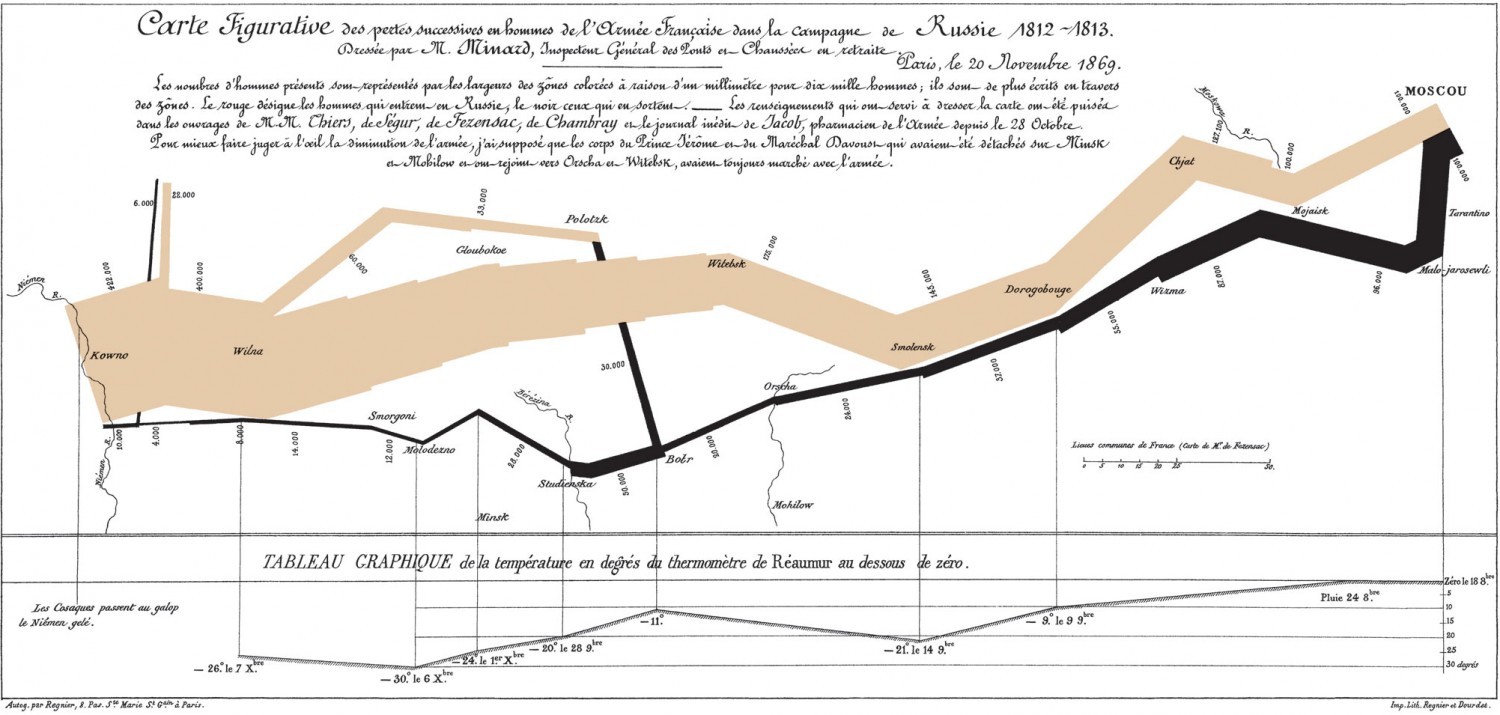Probably the best statistical graphic ever drawn, this map by Charles Joseph Minard portrays the losses suffered by Napoleon’s army in the Russian campaign of 1812. Beginning at the Polish-Russian border, the thick band shows the size of the army at each position. The path of Napoleon’s retreat from Moscow in the bitterly cold winter is depicted by the dark lower band, which is tied to temperature and time scales.
Curious and interesting was what I thought when I first looked at the graph above which I received from Jeffrey Stern, a seasoned lawyer; a former litigator who evolved his practice into one of mediation and arbitration. In sending it along, Jeff told me that he’d found it to be a useful reminder for taking the long view. The graph details Napoleon’s army’s 1812 march from the Polish-Russian border into Moscow (the beige bar) and the retreat back out (the black bar), and contrasts soldier fatalities with the harsh weather conditions of that time.
Closer thinking made me wonder how harsh physical environments, be they physical, intellectual, or emotional, impact losses, casualties and outcomes. It also made me think about a particular meeting I’d recently had with Adele, a woman who came to me toward the end of her divorce process. After three years of difficult negotiations, Adele’s lawyer had presented her with a divorce agreement, and it differed in significant ways from the agreements Adele thought she’d already made with her husband. Adele’s husband’s lawyer had advised him that the informal agreements he’d made with Adele were unenforceable, and that she could get him a better financial deal. That deal flew in the face of the good faith dealings Adele thought she’d been having with her husband, the father of her children and the person with whom she’d continue to co-parent.
What does it mean on a personal level to “win a battle and lose a war”? When parents divorce, a family restructures. Oftentimes money and property become the focal point of a divorce, and when people are separating they are of course concerned about their future financial security. However, when that concern becomes the primary focus (to the detriment of attention being paid to children), no settlement (or “spoils of war”) will ever heal the hurt and pain that will be etched into a child’s heart and mind. Is the advice Adele’s husband received wise counsel? Good lawyering? If someone is left with both a “bigger piece of the pie” and a stomach ache after eating it, is that a win? Which brings me back to Napoleon’s army, and the cost/benefit analysis of the march into Moscow and back out again. Did the sustained march through freezing temperatures which resulted in all the deaths justify the attempt to prevail over Russia? Were Napoleon’s tactics warranted when starvation, desertion, typhus and suicide would cost the French Army more men than all the battles of the Russian invasion combined? At what point does the means not justify the ends? How much is too much? I think all of those questions are worth asking, and not just during a war. They’re worth asking at the beginning of a family’s restructuring. Marching ahead without consideration for the consequences can create permanent damage, and to me that seems indefensible.


